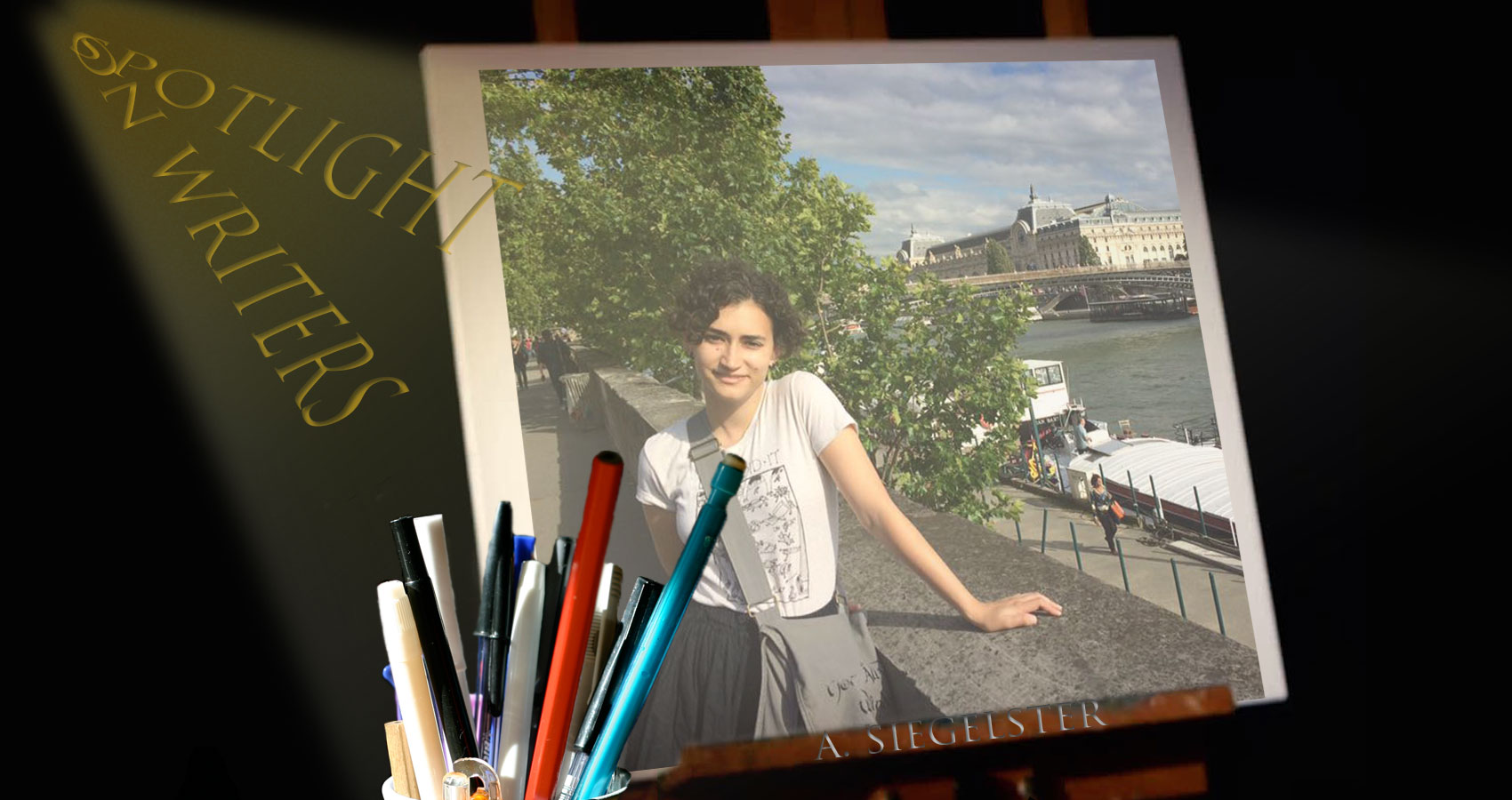Spotlight On Writers
A. Siegelster
@asiegelster
- Where, do you hail from?
- What is the greatest thing about the place you call home?
In considering LA as my home, I think my top three reasons are: the fact that there are enormous opportunities and place to experience the arts (theatre, fine arts, music, etc.); the wonderful diversity of the population and the fact that this city is a home for so many who are trying to make their ways in the world; and the proximity to many natural places, such as the ocean. There are so many other reasons, but that would take an essay.
- What turns you on creatively?
- What is your favorite word, and can you use it in a poetic sentence?
I do not think that I could come up with one single favorite word, so here are a few that I like in a poetic sentence (the words are easy to spot):
Shenanigans are the mannequins of the farce and felicity of a truly masterful harlequin.
- What is your pet peeve?
My pet peeve is both a pet peeve and one of the most wonderful phenomena in my experience, and that is error in language, especially in type. I cannot stand it when someone types “then” instead of “than”. However, these two words provide the perfect example of why this is such a phenomenon of language. Language is changing all the time, and the fact that words are changing, or even being used incorrectly in what we acknowledge to be the standard of language, is a sign of new innovations of language. To go back to the two words above, both “then” and “than” come from the same word, and were used interchangeably until around the 18th century when the distinction was made. The fact that, while not always correct in “standard” English, the words are changing in this way, from “than” to “then” again, means that we as humans are evolving, and that is amazing.
- What defines A. Siegelster?
A. Siegelster (myself) is always learning. When I was learning philosophy, particularly the ideas of Socrates, I learned that I really did not know anything, and that I really did not care. I discovered that here is a whole world, and a whole history out there and inside myself to be learned, and that I, nor anyone, will ever be done learning anything, and that is amazing to me. I will never run out of things to learn or discover. A. Siegelster is a contented learner.
- Spotlight On Writers – A. Siegelster - August 12, 2017
- To Ask The Magic Mirror - July 13, 2017
- Lost - November 5, 2016



